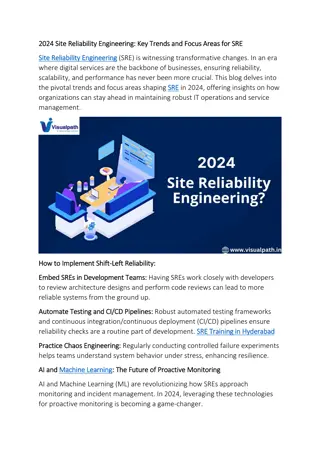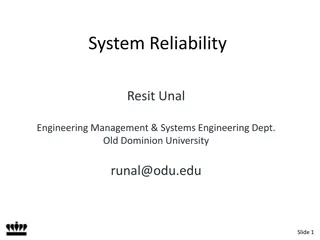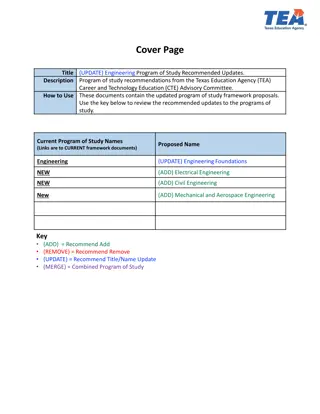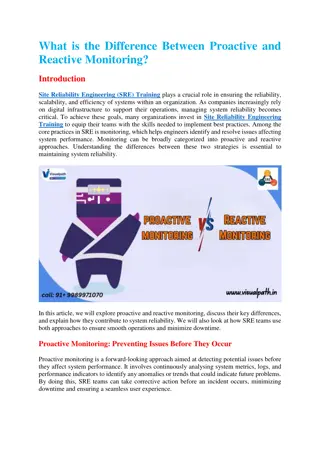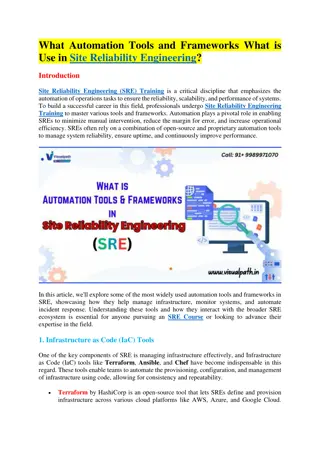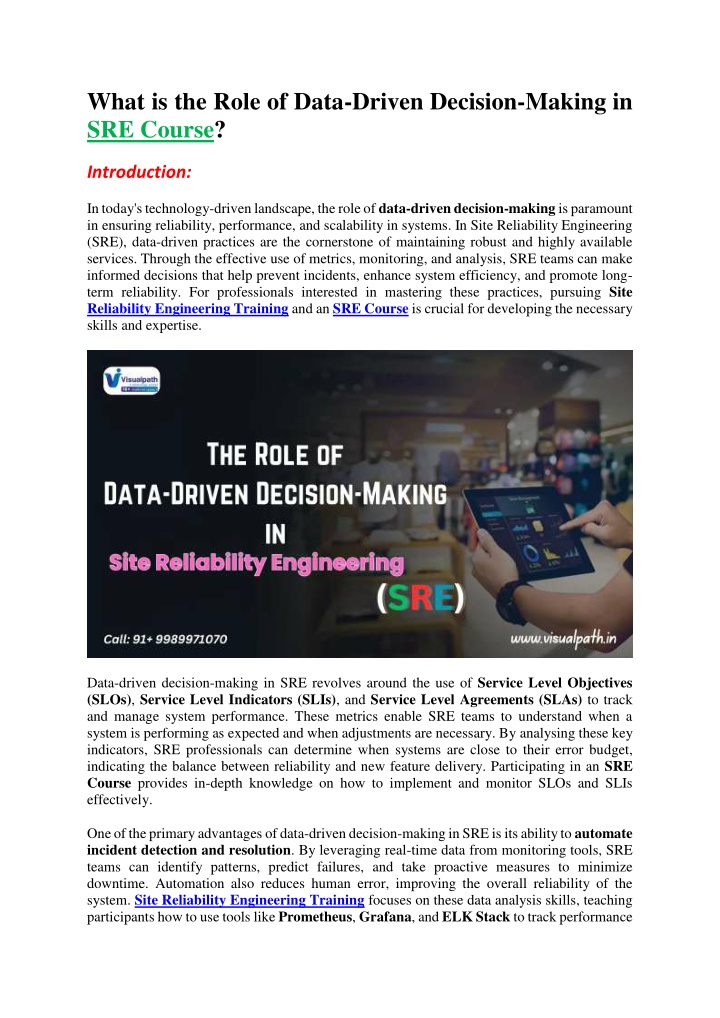
SRE Certification Course - Site Reliability Engineering Training
Join Visualpath for a comprehensive Site Reliability Engineering Training, led by industry experts. Our program offers hands-on projects, real-world scenarios, and interview preparation to help you succeed in your SRE career. Access the SRE Course fr
Uploaded on | 2 Views
Download Presentation

Please find below an Image/Link to download the presentation.
The content on the website is provided AS IS for your information and personal use only. It may not be sold, licensed, or shared on other websites without obtaining consent from the author. If you encounter any issues during the download, it is possible that the publisher has removed the file from their server.
You are allowed to download the files provided on this website for personal or commercial use, subject to the condition that they are used lawfully. All files are the property of their respective owners.
The content on the website is provided AS IS for your information and personal use only. It may not be sold, licensed, or shared on other websites without obtaining consent from the author.
E N D
Presentation Transcript
What is the Role of Data-Driven Decision-Making in SRE Course? Introduction: In today's technology-driven landscape, the role of data-driven decision-making is paramount in ensuring reliability, performance, and scalability in systems. In Site Reliability Engineering (SRE), data-driven practices are the cornerstone of maintaining robust and highly available services. Through the effective use of metrics, monitoring, and analysis, SRE teams can make informed decisions that help prevent incidents, enhance system efficiency, and promote long- term reliability. For professionals interested in mastering these practices, pursuing Site Reliability Engineering Training and an SRE Course is crucial for developing the necessary skills and expertise. Data-driven decision-making in SRE revolves around the use of Service Level Objectives (SLOs), Service Level Indicators (SLIs), and Service Level Agreements (SLAs) to track and manage system performance. These metrics enable SRE teams to understand when a system is performing as expected and when adjustments are necessary. By analysing these key indicators, SRE professionals can determine when systems are close to their error budget, indicating the balance between reliability and new feature delivery. Participating in an SRE Course provides in-depth knowledge on how to implement and monitor SLOs and SLIs effectively. One of the primary advantages of data-driven decision-making in SRE is its ability to automate incident detection and resolution. By leveraging real-time data from monitoring tools, SRE teams can identify patterns, predict failures, and take proactive measures to minimize downtime. Automation also reduces human error, improving the overall reliability of the system. Site Reliability Engineering Training focuses on these data analysis skills, teaching participants how to use tools like Prometheus, Grafana, and ELK Stack to track performance
and build automated response systems. These tools allow SREs to focus on strategic improvements while ensuring that systems remain reliable through automated decision-making processes. Furthermore, data-driven approaches in SRE help optimize resource management and system capacity planning. SRE teams can analyse data on usage patterns, system load, and traffic to forecast future demands and scale infrastructure accordingly. This proactive planning ensures that systems can handle peak loads without compromising performance, thus preventing outages and improving user experience. Through SRE Courses, engineers learn best practices for capacity planning and resource allocation, driven by real-world data and analytics. Data-driven decision-making also plays a crucial role in post-incident analysis. When outages or performance issues occur, SRE teams rely on data to identify root causes, assess the impact, and develop mitigation strategies. This process, known as blameless postmortems, allows teams to continuously improve system resilience. By analysing historical data and monitoring performance trends, SREs can adjust their approach to prevent similar incidents in the future. Site Reliability Engineering Training emphasizes the importance of data in post-incident reviews, teaching participants how to extract valuable insights from past incidents to enhance system reliability over time. Conclusion Data-driven decision-making is integral to the success of Site Reliability Engineering. It empowers SRE teams to make informed choices, automate processes, and continuously improve system reliability. Through comprehensive Site Reliability Engineering Training and an SRE Course, professionals can gain the skills necessary to effectively harness data in their decision-making processes. Whether it's tracking performance metrics, automating incident resolution, or conducting in-depth post-incident analysis, data is the key to maintaining reliable and scalable systems in an ever-evolving digital landscape. By focusing on data-driven strategies, organizations can not only prevent downtime but also ensure that their systems are optimized for the future. Visualpath is the Best Software Online Training Institute in Hyderabad. Avail complete Site Reliability Engineering (SRE)worldwide. You will get the best course at an affordable cost. Attend Free Demo Call on - +91-9989971070. WhatsApp: https://www.whatsapp.com/catalog/919989971070/ Visit:https://www.visualpath.in/online-site-reliability-engineering-training.html Visit our new course: https://www.visualpath.in/online-best-cyber-security-courses.html


